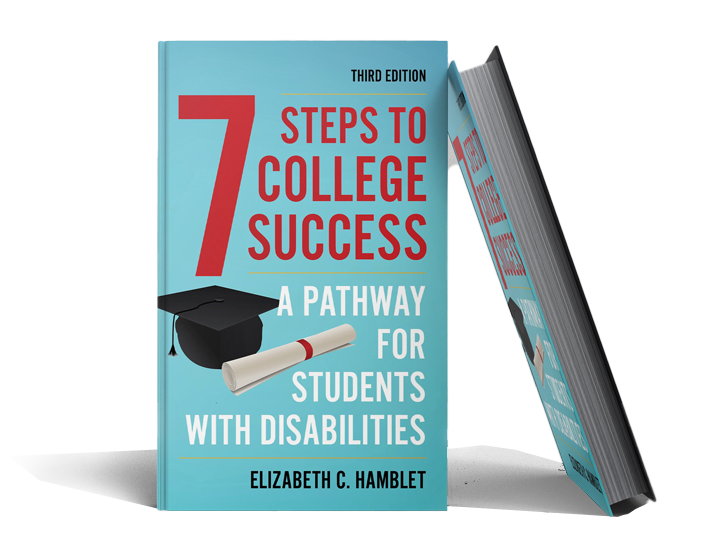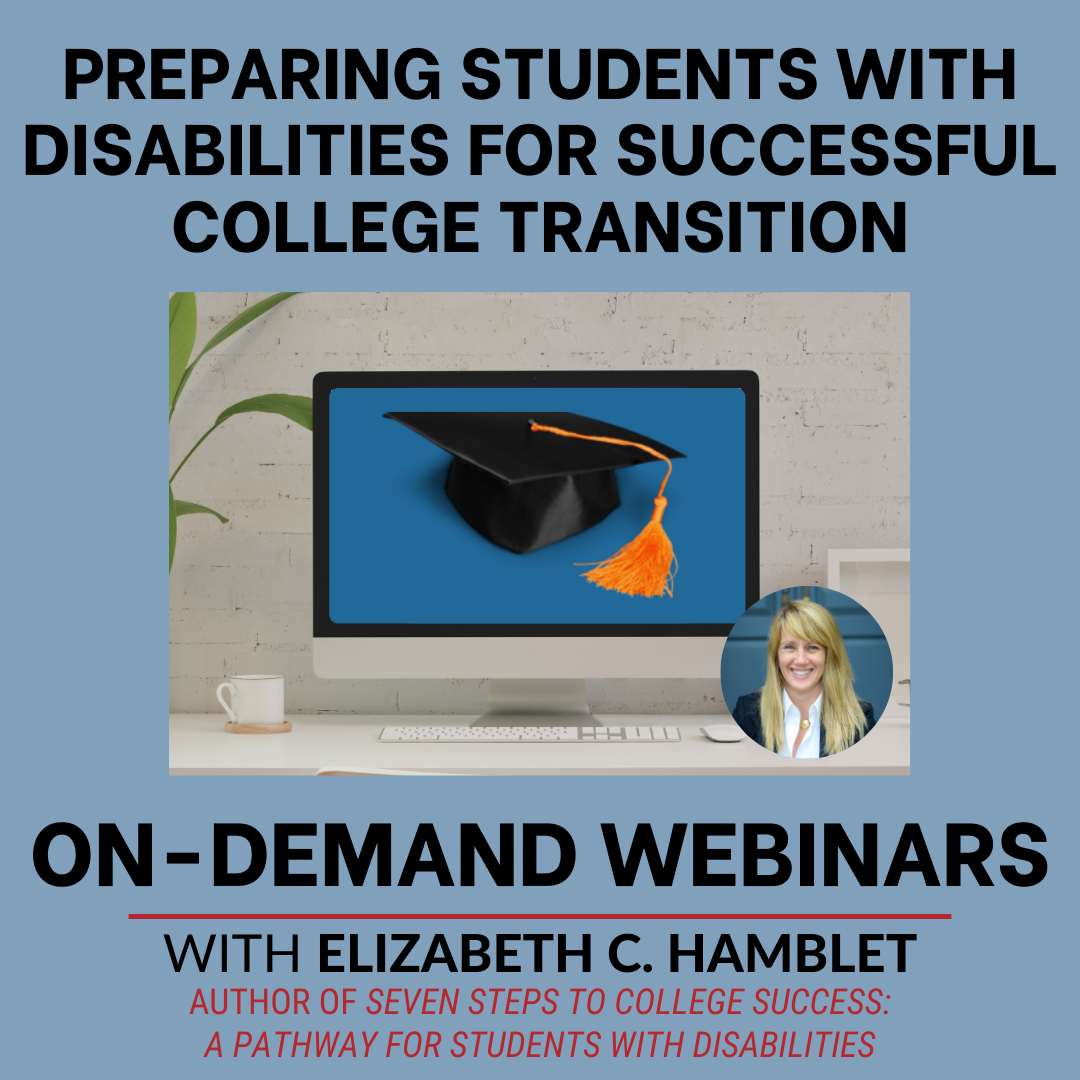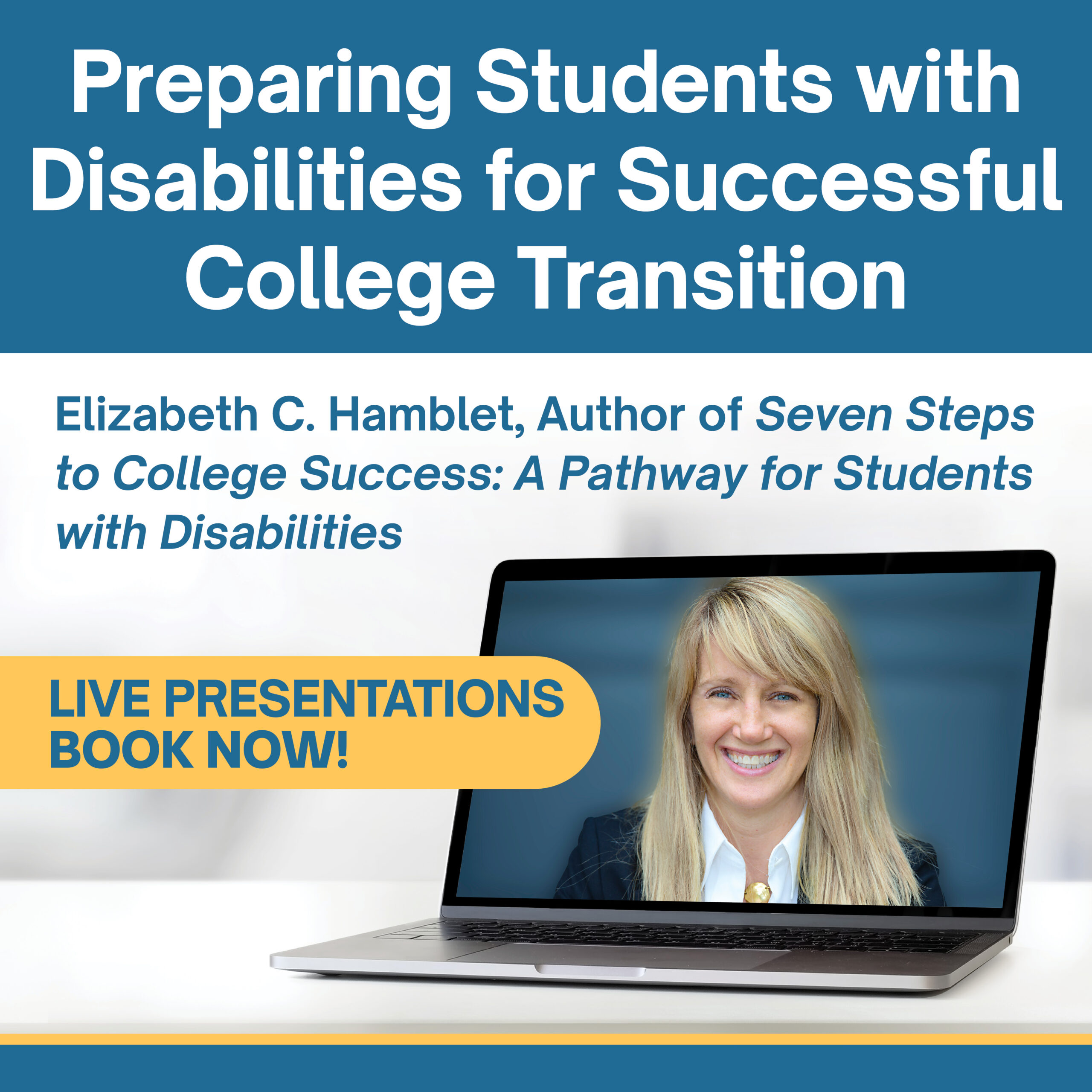Introduction
As I discuss in my book, colleges do offer accommodations to students with learning disabilities, ADHD, and other disabilities. As Step 2 of the book explains, the system is different from the K-12 system, and students will have to be active participants in the accommodation process; they actually have to start it by registering with the right person or office on campus. Once approved, they’ll likely have additional responsibilities.
As I also discuss (in Appendix A of the book), research shows that a majority of these students don’t register for accommodations, for a variety of reasons.
To address their concerns and questions, and to encourage them to register, I recommend that professionals and parents involved in students’ transition to college share talk to students directly about registering for accommodations. Below are some helpful talking points you can use. (See my advice speaking directly to students.)
They should register for accommodations, even if they think they won’t need them.
At college, students are responsible for their choices, including requesting accommodations. If they don’t request accommodations, take some exams without them and feel like they’d have done better if they’d used them, their college isn’t required to adjust their grade or allow them a do-over. (The phrase colleges use is “accommodations aren’t retroactive.”) If they register but find they don’t need their accommodations, they simply don’t have to use them.
At college, the system is different – in ways they will probably like.
Tell students that they won’t get directed into special classes, and no one in class will check in or check up on them, as may have happened when they were in high school classes with in-class supports.
College disability services offices (DS) take students’ privacy seriously.
The only people who need to know they have accommodations are the people who’ll be involved in them, like professors. But professors have no right to know what students’ disability is, and it’s unlikely that the disability services office will tell them. (Students should ask DS if they’re worried about this.) That said, students can tell professors about their disability if they like.
Students should register for accommodations now.
(The approval process can take several weeks.) They should know that if they find they don’t need their accommodations, no one can “make” students use them, but if they panic the night before their first exam, it will be too late to get accommodated for that test, and (again) there typically are no “do-overs” for exams in college.
If one or more of their requests is denied and they want to pursue it further, students can ask how to appeal the decision.
They won’t necessarily get a different answer, but it’s worth trying. (Read Step 1 of my book to see why requests might not be approved.)
They have rights.
If they register with DS and are approved for accommodations, they should ask their coordinator what to do if a professor says they can’t have one (or all) of those accommodations in that class. There should be a process in place to review such objections, but students may have to at least tell DS about them so that DS can initiate it. (Learn more about this.)
Accommodations aren’t the only tool for success.
They should register for them, but also be aware of (and utilize) the other sources of support, such as any tutoring, the writing center, counseling services, academic coaching, workshops, etc. Tell them that seeking help is a sign of strength, not weakness.
Tell students that the decision to register is theirs, and the responsibility is theirs, too. Ask them to consider how accommodations might help them and encourage them to keep an open mind. It’s better for them to register and find out they didn’t need accommodations than it is to find out the hard way that they do.

Learn more about why students don’t register for accommodations, how giving them college transition preparation can help, and more. Read my book, Seven Steps to College Success: A Pathway for Students with Disabilities.
Click the button below to get the code and link to get 20% off (if you order from my publisher) plus other purchase options.



